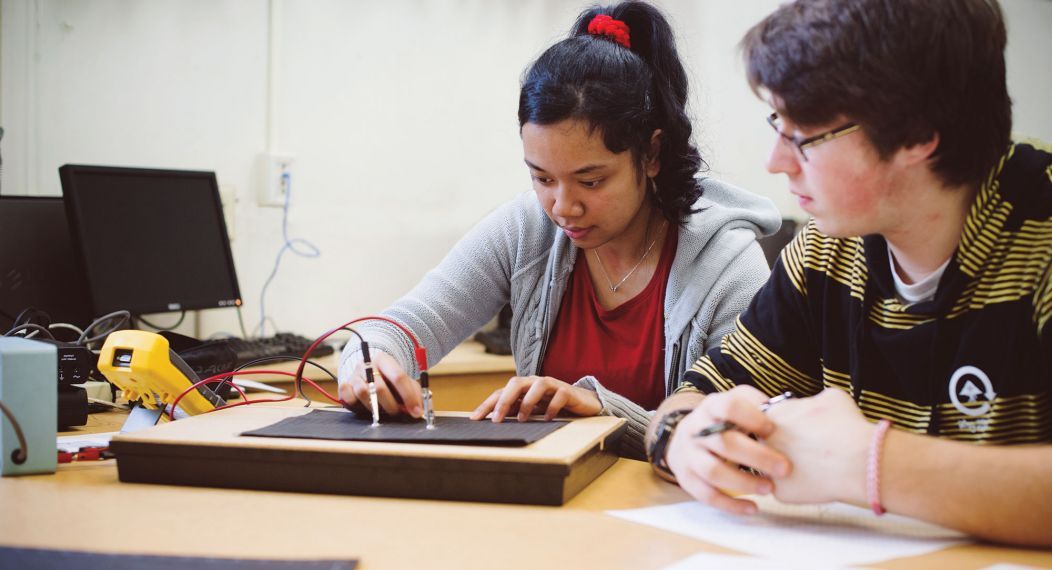Exceptional Faculty with Exceptional Expertise
The faculty in the Department of Physics and Astronomy are exceptional teachers and world famous researchers in their fields of study, selected to become members of our department by the most rigorous standards.
We Focus on Undergraduate Students
Our department is smaller than departments at larger research-focused schools, which means we get to know our students on an individual basis. We know their personal strengths, needs and interests. In larger departments at other universities, the faculty work primarily with their graduate students, leaving undergraduates at a distance. We work closely with our undergraduate students, mentoring them through the most formative time in their career.
We help students understand and explore natural relationships, their meaning, interconnectedness and their use. The study of physics includes mastering very broad fundamentals which apply to everything from atoms to galaxies, as well as specific studies in topical specializations such as computational and astrophysics. Students are also encouraged to participate in undergraduate research projects both here at Pacific and at other institutions during the summer break.
Our students graduate with a passion for their work and an ability to think deeply through questions. They are able to find and connect abstract relationships to new situations, and are academically confident and knowledgeable scientists and teachers.
Research Opportunities: Explore with Us
Our small size does not limit our ability to expose students to cutting-edge research. Students in the Department of Physics and Astronomy have numerous ways to get involved in physics activities. Students can work on projects outside the classroom to experience the science of physics. Our faculty are world renowned for their research into supermassive black hole formation at the center of galaxies, characterizing Earth-sized exoplanets, discovering new galaxies with unexpected properties and testing particle physics models with supercomputer simulations.
Facilities and Equipment
The offices, laboratories and classrooms of the physics and astronomy department occupy Olson Hall. Labs are equipped with modern facilities for courses in optics solid state physics, advanced experiments, as well as for the Introductory Physics, Music, and Astronomy courses. Equipment includes a 2.3 meter radio telescope for student use. The department has two computer labs with PCs, and a scientific computing (unix) lab.
Events
Recently, physics and astronomy department faculty and students went on a field trip for night-time viewing at the Lick Observatory on Mount Hamilton near San Jose. The observatory is owned and run by the University of California, thanks to our faculty Dr Elisa Toloba and Dr Guillermo Barro we had permission for a private tour.
We've recently hosted talks by Dr. Chris McKay from the NASA Ames Research Center on terraforming Mars by Prof Raja Guhathakurta from UC Santa Cruz on studying galaxy formation as well as career advice for undergraduate students, and by Dr Tomer Tal (Ph.D. Yale) from Chegg on data science and machine learning.
Physics undergraduates at conferences
Kadri Bin Mohamad Nizam and Justin Barber presented posters on their research at the American Astronomical Society meeting in Seattle in January 2019. Katie Ram, Nina Madsen and Katie Christensen were at the Conference for Undergraduate Women in Physics (CUWiP) in Los Angeles last year.



